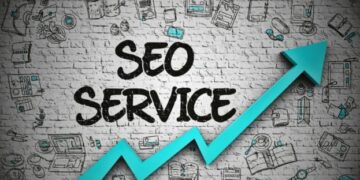Mastering the art of on-page SEO optimization is paramount for achieving online visibility and driving organic traffic to your website. As search engine algorithms evolve, so do the strategies for enhancing on-page elements to rank higher in search results. Whether you’re a seasoned marketer or a novice entrepreneur, understanding the nuances of on-page SEO can significantly impact your online success.
Understanding On-Page SEO
On-page SEO encompasses the optimization of various elements within your website to improve its search engine rankings and enhance user experience. Unlike off-page SEO, which focuses on external factors like backlinks, on-page SEO revolves around optimizing content, HTML source code, and technical aspects directly within your website.
Keyword Research and Optimization
At the core of on-page SEO lies keyword research and optimization. Identifying relevant keywords that resonate with your target audience’s search queries is essential. Tools like Google Keyword Planner, SEMrush, or Moz Keyword Explorer can assist in uncovering valuable keywords with high search volume and low competition. Once you’ve selected your target keywords, strategically incorporate them into your website’s titles, meta descriptions, headers, and body content for maximum impact.
Crafting High-Quality Content
Content reigns supreme in the digital realm, making its optimization integral to on-page SEO success. Aim to create compelling, informative, and engaging content that addresses the needs and interests of your audience. Incorporate your target keywords naturally within the content while maintaining readability and coherence. Additionally, regularly update and refresh your content to demonstrate relevance to search engines and users alike.
Optimizing Meta Tags and Descriptions
Meta tags, including title tags and meta descriptions, play a crucial role in on-page SEO optimization. Craft concise and descriptive title tags that accurately reflect the content of each page while incorporating relevant keywords. Similarly, optimize meta descriptions to provide a brief summary of the page’s content, enticing users to click through from search engine results pages (SERPs).
Enhancing Website Structure and Navigation
A well-organized website structure not only facilitates seamless navigation for users but also enhances crawlability for search engine bots. Utilize clear and intuitive navigation menus, internal linking, and breadcrumb trails to guide visitors through your website’s hierarchy. Additionally, optimize URL structures to include relevant keywords and maintain consistency across your site.
Image Optimization
Images are more than just visual elements—they also present opportunities for on-page SEO optimization. When uploading images to your website, ensure they are appropriately optimized for size and format to minimize loading times and improve user experience. Additionally, descriptive filenames and alt tags containing relevant keywords should be incorporated to enhance accessibility and search engine visibility.
Mobile Optimization
With the majority of internet traffic originating from mobile devices, optimizing your website for mobile responsiveness is non-negotiable. Adopt a mobile-first approach to web design, ensuring that your site is seamlessly accessible and navigable across various devices and screen sizes. Google’s Mobile-Friendly Test can help identify any issues and provide recommendations for improvement.
Leveraging Local SEO Strategies
For businesses targeting local audiences, incorporating local SEO strategies is imperative. Optimize your website’s on-page elements to include location-specific keywords, business information, and schema markup. Additionally, claim and optimize your Google My Business listing to improve your visibility in local search results and attract nearby customers searching for local services.
Monitoring and Analysis
On-page SEO optimization is an ongoing process that requires continuous monitoring and analysis. Utilize tools like Google Analytics and Google Search Console to track website performance, monitor keyword rankings, and identify areas for improvement. Regularly analyze user behavior, engagement metrics, and conversion rates to refine your on-page SEO strategies and drive sustainable results.
Stay Updated with Algorithm Changes
Search engine algorithms are constantly evolving to deliver more relevant and accurate search results. Stay abreast of algorithm updates from major search engines like Google, Bing, and Yahoo. Joining industry forums, following reputable SEO blogs, and attending webinars can provide valuable insights into algorithm changes and their implications for on-page SEO strategies.
Conduct Regular SEO Audits
Regular SEO audits are essential for identifying and rectifying issues that may be hindering your website’s performance. Conduct comprehensive audits to evaluate on-page elements such as metadata, content quality, site structure, and technical SEO aspects. Address any issues promptly to ensure optimal crawlability, indexability, and user experience.
A/B Testing and Experimentation
Experimentation is key to refining your on-page SEO strategies and uncovering what works best for your audience. Conduct A/B tests to compare different versions of web pages, headlines, meta tags, and calls-to-action. Analyze the results to identify winning variations and implement them across your website for improved performance.
Prioritize User Experience (UX)
While search engine rankings are important, they should never come at the expense of user experience. Prioritize UX by ensuring your website is intuitive, easy to navigate, and visually appealing. Optimize page loading speeds, eliminate intrusive pop-ups, and provide valuable, relevant content that meets the needs of your audience.
Harness the Power of Rich Snippets
Rich snippets, such as featured snippets, knowledge panels, and schema markup, can enhance your website’s visibility in search results and attract more clicks. Implement structured data markup to provide search engines with context about your content, increasing the likelihood of appearing in rich snippet formats.
Monitor Competitors
Keep a close eye on your competitors’ on-page SEO strategies to identify opportunities and stay ahead of the competition. Analyze their keyword targeting, content strategies, and backlink profiles to glean insights and adjust your approach accordingly. Tools like SEMrush, Ahrefs, and Moz can provide valuable competitive intelligence.
Invest in High-Quality Backlinks
While on-page SEO is crucial, off-page factors like backlinks also play a significant role in determining search engine rankings. Invest in building high-quality backlinks from reputable websites within your industry or niche. Focus on acquiring natural, editorially earned links through guest blogging, content partnerships, and outreach campaigns.
Engage with Your Audience
Building a strong rapport with your audience not only fosters brand loyalty but also generates valuable social signals that can positively impact your on-page SEO efforts. Engage with your audience through social media, blog comments, forums, and online communities. Encourage user-generated content and reviews to enhance credibility and authority.
Measure, Analyze, and Iterate
Regularly monitor key performance indicators (KPIs) related to on-page SEO, such as organic traffic, keyword rankings, conversion rates, and bounce rates. Analyze data trends and performance metrics to identify areas for improvement and optimization. Continuously iterate and refine your on-page SEO strategies based on data-driven insights and feedback.
Conclusion
Mastering on-page SEO optimization is a multifaceted endeavor that demands attention to detail, strategic planning, and ongoing refinement. By implementing the tips and tricks outlined in this guide, you can enhance your website’s visibility, attract qualified traffic, and ultimately achieve your digital marketing goals. Remember, on-page SEO is not a one-time task but a continuous effort to stay ahead in the ever-evolving landscape of search engine optimization.
For businesses seeking to boost their online presence and attract local customers, partnering with reputable local SEO services can provide invaluable expertise and support in navigating the complexities of on-page optimization.
So, take the first step towards on-page SEO excellence and unlock the full potential of your website’s online visibility and success.




































